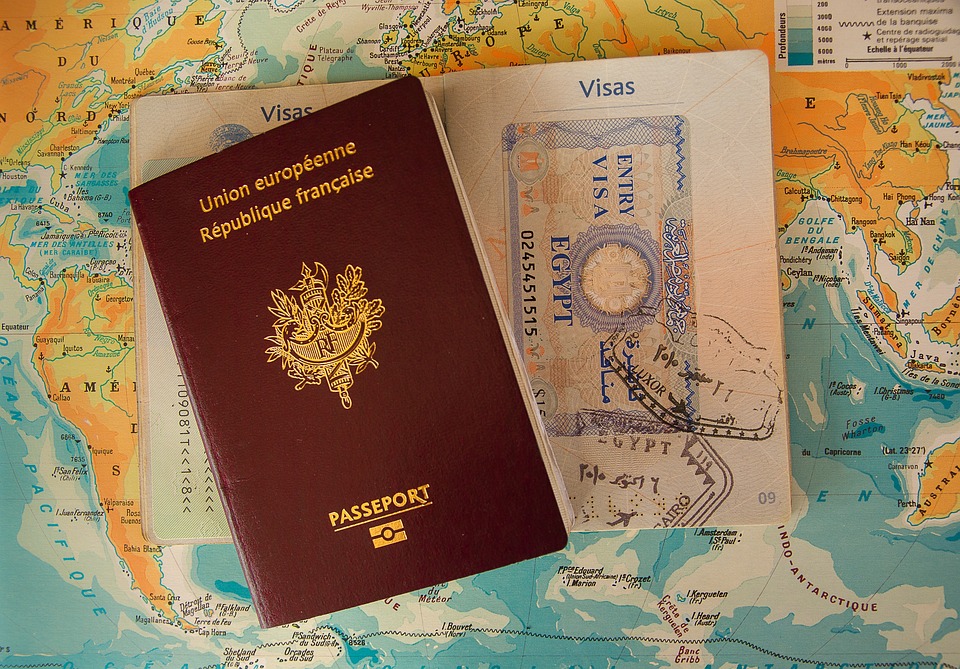The greatest appeal of studying in Japan is its academic environment where one can study state-of-the-art technology and acquire the knowledge that enabled Japan’s phenomenal postwar economic growth. Whether it is electronics, Japanese literature, medicine or international business administration, Japanese universities and other institutes of higher education can offer course studies or research programs of virtually any field.

The greatest appeal of studying in Japan is its academic environment where one can study state-of-the-art technology and acquire the knowledge that enabled Japan’s phenomenal postwar economic growth. Whether it is electronics, Japanese literature, medicine or international business administration, Japanese universities and other institutes of higher education can offer course studies or research programs of virtually any field.
The ratio of students who go on to universities (undergraduate level) and junior colleges (regular courses) is also very high in Japan at 56.2%. This figure is indicative of the high standard of education in Japan. Many institutions of higher education, such as universities and junior colleges, are well equipped with fine research, computer, and library facilities and enable students to carry out their research in an excellent environment.

Top Universities in Japan
Here are some of the top universities in Japan and their notable programs:
| University | Location | Notable Programs |
| University of Tokyo | Tokyo | Engineering, Science, Humanities, Law |
| Kyoto University | Kyoto | Science, Engineering, Economics, Law |
| Osaka University | Osaka | Engineering, Science, Humanities |
| Tohoku University | Sendai | Science, Engineering, International Studies |
| Kyushu University | Fukuoka | Engineering, Science, Social Sciences |
| Tokyo Institute of Technology | Tokyo | Engineering, Technology, Applied Science |
| Hitotsubashi University | Tokyo | Business, Economics, Law |
| Nagoya University | Nagoya | Science, Engineering, Humanities |
| Hosei University | Tokyo | Social Sciences, Law, Business |
| Waseda University | Tokyo | Business, Social Sciences, Law |
Program Levels
- Undergraduate Degrees: Typically 4 years.
- Master’s Degrees: Usually 2 years.
- Doctoral Degrees: Typically 3-5 years.
- Diplomas and Certificates: Shorter programs focused on specific skills.
Research Programs
- University Websites: Visit the universities’ official websites for detailed information on available programs and courses.
- University Rankings: Check rankings on QS World University Rankings, Times Higher Education, and ARWU.

Steps to Apply
1. Research Programs and Universities:
- Look into the programs and universities that align with your academic and career goals.
Check Admission Requirements:
2. Academic Transcripts: From previous educational institutions.
- Letters of Recommendation: Usually 1-2 letters from academic or professional references.
- Personal Statement: An essay explaining your academic interests and motivations.
- Proof of Japanese Language Proficiency: For Japanese-taught programs, test scores from JLPT, EJU, or equivalent.
- Proof of English Language Proficiency: For English-taught programs, test scores from TOEFL or IELTS.
- Resume/CV: Detailed academic and professional background.
3. Apply Online or Through the University:
- Many universities have their own application portals, or you can apply through centralized systems like Japan Study Support for international students.
4. Pay Application Fee:
- Application fees range from ¥5,000 to ¥30,000 depending on the university and program.
5. Submit Required Documents:
- Ensure all documents are complete and submitted by the deadline.
6. Receive Offer and Accept:
- If accepted, you will receive an offer letter to which you must formally accept and pay any required deposits.
Application Deadlines
- Undergraduate Programs: Typically around April to June for October intake, and October to December for April intake.
- Master’s and Doctoral Programs: Deadlines vary, often in April for October intake and in September for April intake.
4. Student Visa and Immigration
Applying for a Student Visa
- Receive Acceptance Letter: Obtain an acceptance letter from a Japanese university.
2. Prepare Documents:
- Certificate of Eligibility (CoE): Issued by the university.
- Valid Passport: Must be valid for the duration of your stay.
- Visa Application Form: Completed form available from the Japanese embassy or consulate.
- Passport Photos: Recent passport-sized photographs.
- Proof of Financial Ability: Bank statements or scholarship certificates.
- Application Fee: Approximately ¥3,000 for the visa application.
3. Apply at Japanese Embassy or Consulate:
- Submit your documents to the Japanese embassy or consulate in your home country.
4. Visa Processing Time:
- Typical Processing Time: 1-2 months.

Tuition Fees
| Program Level | Estimated Tuition Fees |
| Undergraduate | ¥500,000 to ¥1,200,000 per year |
| Master’s Degree | ¥600,000 to ¥1,500,000 per year |
| Doctoral Degree | ¥600,000 to ¥1,500,000 per year |
| Diplomas/Certificates | ¥200,000 to ¥1,000,000 per year |
Living Expenses
- Accommodation: ¥30,000 to ¥80,000 per month.
- Food: ¥30,000 to ¥50,000 per month.
- Health Insurance: ¥2,000 to ¥4,000 per month.
- Other Expenses: ¥10,000 to ¥20,000 per month for transportation, books, and personal costs.
Total Estimated Cost
- Undergraduate: ¥830,000 to ¥2,020,000 per year.
- Master’s Degree: ¥860,000 to ¥2,040,000 per year.
Scholarships and Financial Aid
Types of Financial Aid
- University Scholarships: Many universities offer scholarships for international students based on merit or need.
- Japanese Government Scholarships:
- Monbukagakusho (MEXT) Scholarships: Government-funded scholarships for international students.
- Japan Student Services Organization (JASSO): Offers scholarships and support services for international students.
- External Scholarships: Look for scholarships from organizations like the Japan Foundation or private foundations.
Scholarship Resources
- MEXT Scholarships | Information on government scholarships.
- JASSO Scholarships | Scholarships and support for international students.
- ScholarshipPortal | External scholarships for studying in Japan.

Housing Options
- On-Campus: University dormitories.
- Off-Campus: Private apartments, shared housing, or guesthouses.
- Homestay: Live with a Japanese family for a cultural experience.
Healthcare
- Health Insurance: National Health Insurance (NHI) is available for international students.
Transportation
- Public Transport: Extensive networks of trains, subways, and buses.
- Bicycles: A common and convenient option for short commutes.
Cultural Experience
- Explore Japan: Visit historical sites, enjoy traditional festivals, and experience Japanese cuisine.
- Cultural Activities: Participate in local events, clubs, and organizations.
Post-Graduation Opportunities
Work Opportunities
- Work Visa: After graduation, you can apply for a work visa if you find a job related to your field of study.
- Job Hunting: Look for job opportunities in Japan through university career services or job fairs.
Pathways to Permanent Residency
- Work-Based Visas: Work visas can be extended and may lead to permanent residency.
- Highly Skilled Professional Visa: For highly skilled workers in certain professions.

